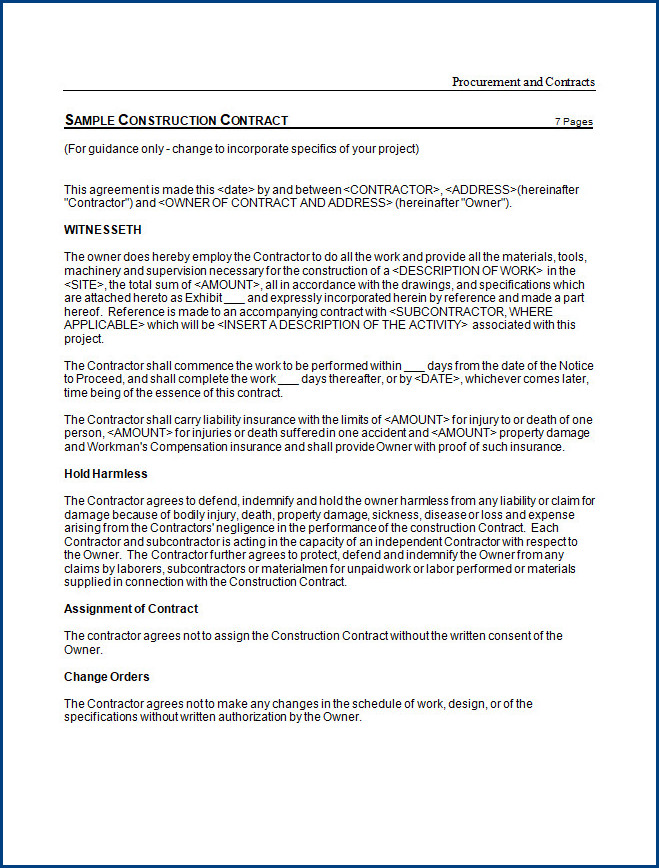What is a construction contractor agreement?
A construction contractor agreement is a legally binding document that outlines the terms and conditions between a contractor and a client for a construction project. It serves as a contract that governs the relationship between the two parties, ensuring that both parties understand their roles, responsibilities, and expectations. The agreement typically includes important details such as the scope of work, project timeline, payment terms, and dispute resolution procedures.
The purpose of a construction contractor agreement is to protect the interests of both the contractor and the client. By clearly defining the terms and conditions of the project, the agreement helps to minimize misunderstandings and disputes. It ensures that the contractor delivers the agreed-upon work within the specified time frame and budget, while the client provides prompt payment for the services rendered. Additionally, the agreement establishes the legal rights and obligations of both parties in the event of a breach or disagreement, providing a framework for resolving any potential disputes through mediation, arbitration, or legal action.
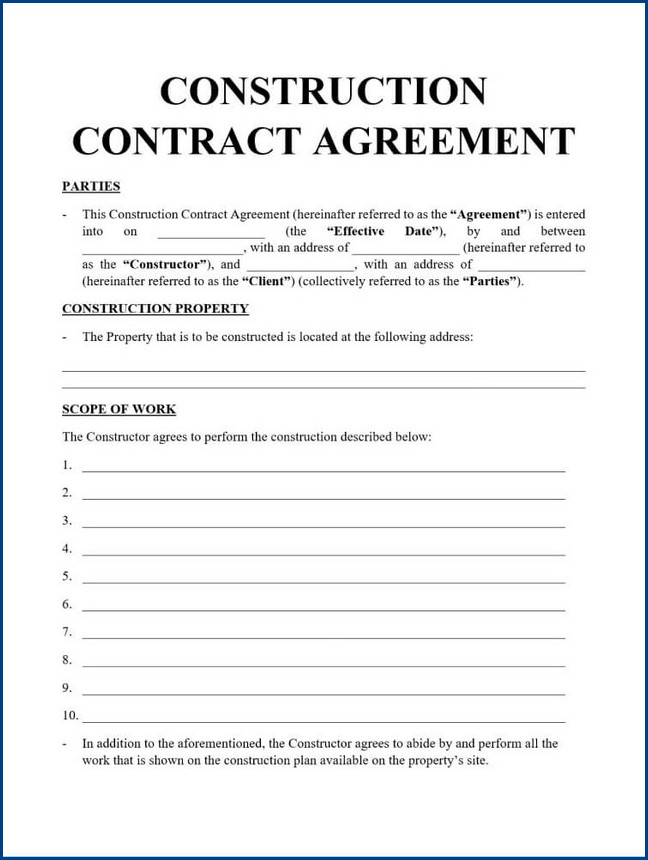
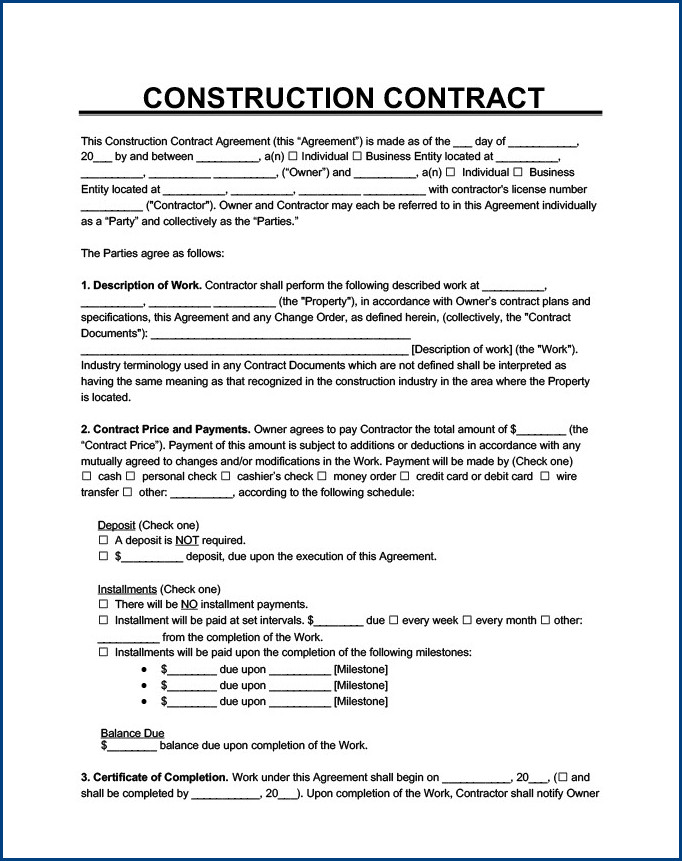
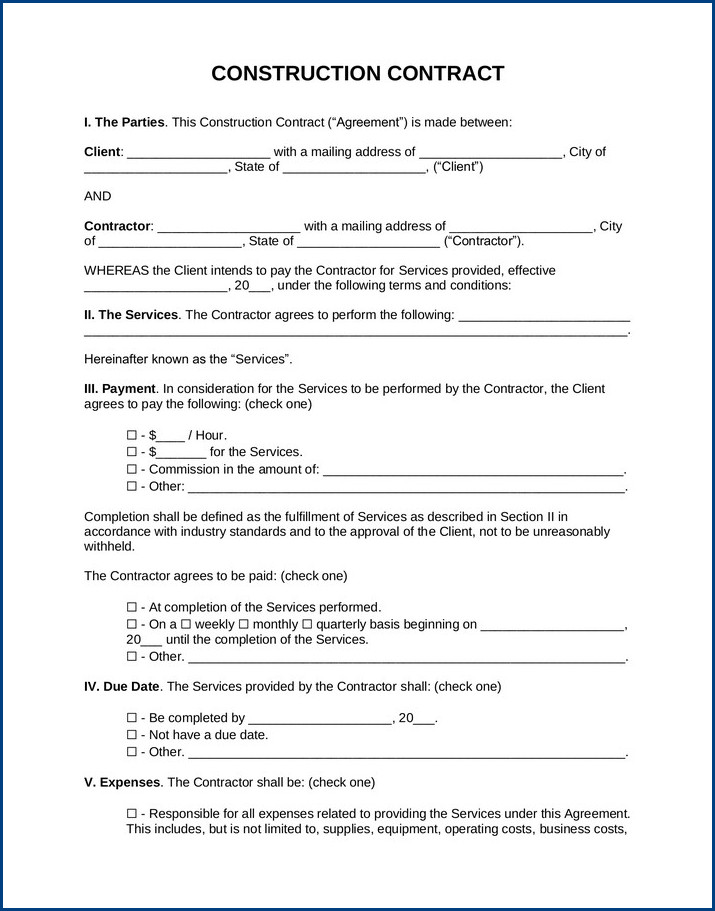
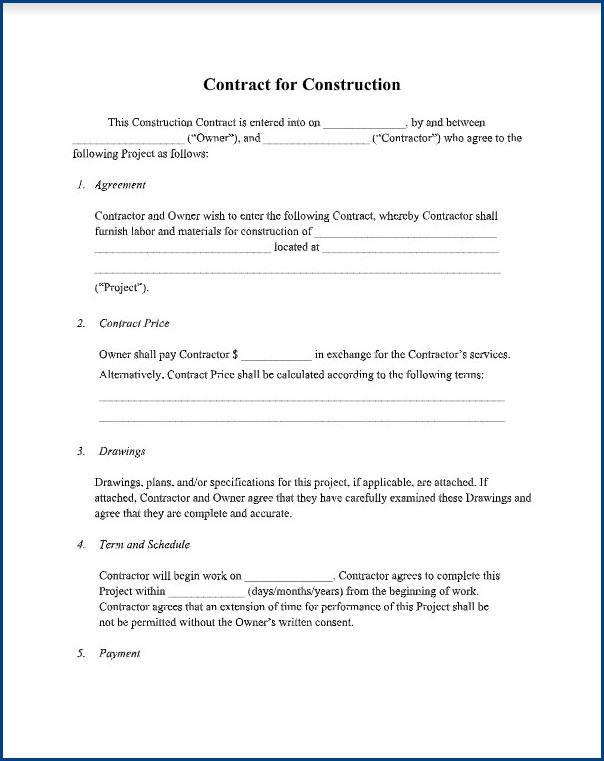
Why is a construction contractor agreement important?
Construction contractor agreements play a crucial role in ensuring a successful and smooth construction project:
- Clarity and Understanding: A construction contractor agreement clearly defines the scope of work, project timeline, deliverables, and payment terms. This ensures that both the contractor and the client have a clear understanding of their responsibilities and obligations.
- Legal Protection: By having a written agreement in place, both parties are protected in case of any disputes or disagreements. The agreement can act as evidence of the agreed-upon terms and can help resolve conflicts in a fair and efficient manner.
- Prevention of Miscommunication: Construction projects involve various parties such as subcontractors, suppliers, and architects. A contractor agreement helps prevent miscommunication by clearly stating the roles and responsibilities of each party involved. This reduces the chances of misunderstandings and delays in the project.
- Quality Assurance: The construction contractor agreement can include provisions for quality standards and performance expectations. This ensures that the contractor is accountable for delivering high-quality workmanship and materials.
- Cost Control: The agreement can outline the payment terms, including the total project cost, payment schedule, and any penalties for delays or additional work. This helps in controlling costs and avoiding unexpected expenses.
- Project Completion: A well-drafted contractor agreement sets clear deadlines and milestones for the project. This helps in ensuring that the construction project is completed within the agreed-upon timeframe.
How do you write a simple construction contract?
Here are the steps to write a simple construction contract:
- Title and parties involved: Begin the contract by clearly stating the title, such as “Construction Contract for [Project Name].” Identify the parties involved, including the client and contractor, along with their contact information.
- Scope of work: Clearly define the scope of work, including the specific tasks, materials, and services to be provided. This section should be detailed and comprehensive to avoid any confusion or disputes in the future.
- Timeline and milestones: Specify the project timeline, including start and completion dates. Break down the project into milestones or phases and set deadlines for each. This helps in tracking progress and ensures timely completion.
- Payment terms: Clearly outline the payment terms, including the total contract price, payment schedule, and any applicable penalties or incentives. It is crucial to be specific about the payment method and due dates to avoid any payment-related conflicts.
- Change orders: Address the process for handling any changes or modifications to the original scope of work. Specify that all changes must be made in writing and agreed upon by both parties before implementation.
- Dispute resolution: Include a section that outlines the process for resolving disputes, such as mediation or arbitration. This helps in avoiding costly legal battles and encourages both parties to find an amicable solution.
Writing a simple construction contract requires attention to detail and clear communication between the contractor and the client. By following these steps and including the necessary elements, such as the title and parties involved, scope of work, timeline, and milestones, payment terms, change orders, and dispute resolution, both parties can protect their interests and ensure a successful construction project.
Construction Contractor Agreement Template | Word – Download
Construction Contractor Agreement Template | PDF – Download
